Coping Skills to Reduce Daily Intensity
Stress Management Training & Counseling in Delray Beach
What Do We Mean When We Say “Stressed?”
When was the last time you went a full day without describing yourself as “stressed?”
We use the word so often that we almost forget what it means. We are taught so much about “handling” or “reducing” stress – but who teaches us what stress is? Managing your stress effectively and strategically can’t begin until you understand what stress is, and what it does to your mind and body.
Breakwater Psychotherapy approaches stress as defined by the American Institute of Stress, which credits Hans Selye (1936) with defining stress as “the non-specific response of the body to any demand for change.” In plain terms, stress is anything your body has to do to respond to change. The change doesn’t have to just be something happening around you; more often than not, the change is something that happens psychologically, inside your mind. A stress change can be a sudden realization of something you have to do, a reminder of something you’ve been through, or even just something you can imagine happening.
Many people are taught to manage stress by controlling contributing factors. We are taught to control our minds – to think positively, forget about difficult experiences, or rationalize our experiences until they don’t feel so big. Or we are taught that getting control of stress means controlling your time and schedule in ways that simply aren’t sustainable.
Unfortunately, these stress management strategies often only work for a short while or demand so much effort that they become impossible to keep up with. Breakwater therapists are trained in the science and practice of effective, sustainable stress management, and ready to tailor a program to your specific needs.
Signs That Stress Might Be Getting to You
Every human experiences stress, and for good reason - it helps us hold our lives together and stay out of trouble. But when your stress level becomes regularly elevated for long periods of time, it can begin to hurt our mental and physical health. Look over the following signs of unhealthy stress and see if any resonate with your experience:
Irritability
Fatigue
Feeling “angry” or “numb” more than usual
Difficulty getting to or staying asleep
Difficulty staying focused on present tasks
Racing thoughts, sometimes about the same issue even when the issue is not present
Relying on “quick fixes” to feel better
Avoidance and procrastination on important tasks
How Stress Management Wellness Consults Work
Wellness Consults are designed to accommodate a wide range of needs, including people who feel the impacts of stress in their lives but who don’t necessarily have the time or desire to “unpack it all” in therapy. Consults are designed to quickly reach the following goals:
Learn more about what “stress reactions” are, and how humans are designed to respond to them
Identify what stress does in your body: what it does to your mind, your emotions, your motivation, and your physical self
Identify and prioritize the most important triggers of stress affecting you daily
Learn how to notice and respond to your stress reactions more effectively
Practice incorporating strategies into your real life to reduce and prevent episodes of overwhelm or disruption
Your stress management provider will guide you in a process of better understanding, anticipating, and responding to stress.
Things You Can Do For Yourself Today
Breakwater is available to help whenever you are ready. Here are a few tips to help you relieve stress in the meantime:
Start small.
You probably already have some version of a “to-do” list. If you have a lot of items, start with the smaller ones to get them out of the way. We often get preoccupied with the biggest tasks at the expense of making progress on smaller ones that can also add up. Or, if your stress revolves around a singular issue or event, try to break that one big thing down into smaller steps or even micro-steps you can more easily approach.
Write things down.
This can help “get it out of your head” when you are stuck, or help you remember things when your mind is racing. Writing helps us slow down. Once all your main concerns are “sitting still” on the page, perhaps you can prioritize which tasks are most important or approachable today.
Commit to self-care.
Taking care of ourselves is often last on the list when we have so many projects and loved ones we are trying to take care of. But our bodies are machines, and they require upkeep. Would you try to drive your loved one to an important appointment in a car with no gas, flat tires, or a dead battery? It’s not only your commitment to your goals that matters, but also your commitment to the body that will help you get them done.
Build a team.
Asking for help is hard. But if you have people around you who are going through similar challenges, chances are sharing your struggles will be a point of relating to them, not a burden. And if you’re around people who don’t get it, then remember that they don’t have to get it in order to be helpful. A willing helper need not understand why something is helpful, only that it is helpful. Be brave and share your worries, delegate tasks, and say “yes” when people you trust offer you support.
If you’d like Breakwater Psychotherapy to be on your team, call today to schedule a free, 15-minute consult to discuss your concerns and how we might be able to help.
